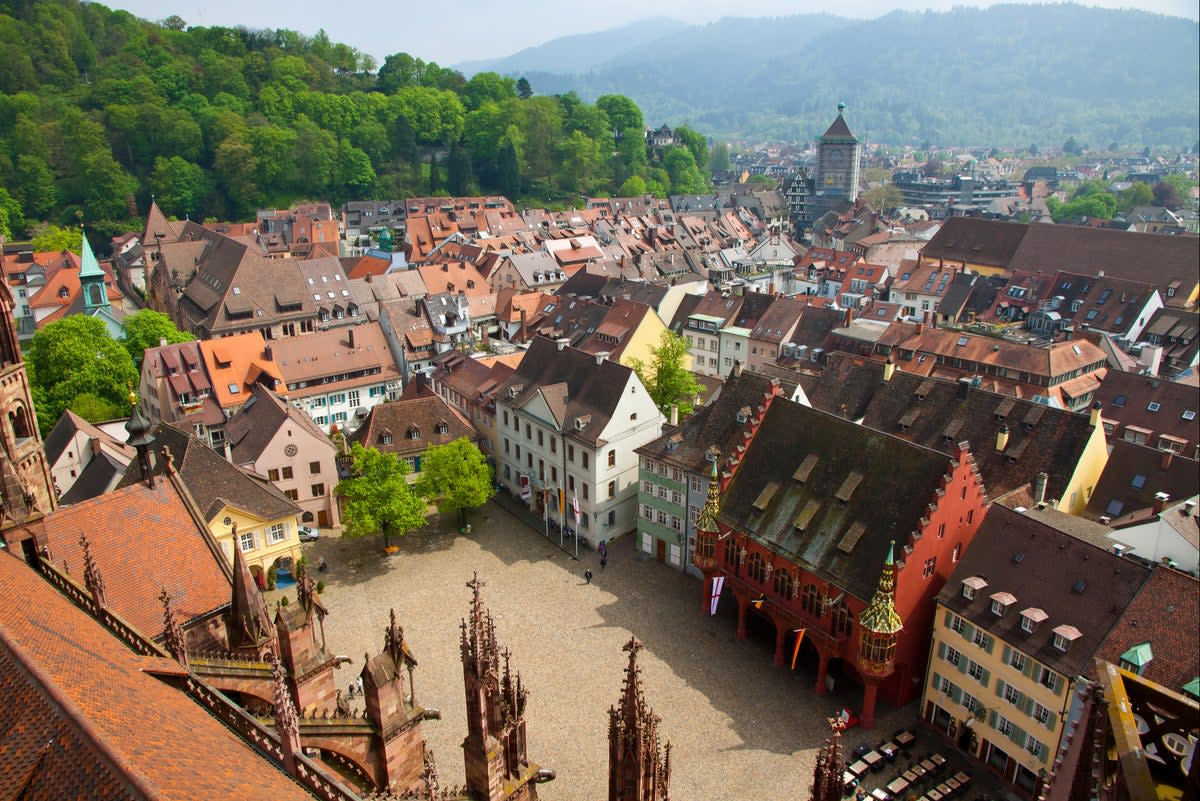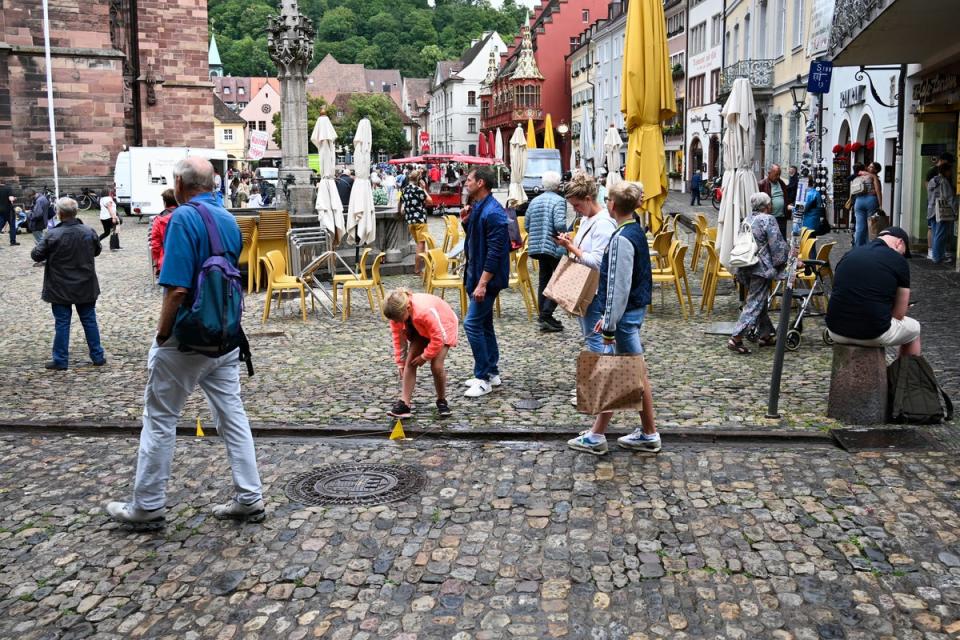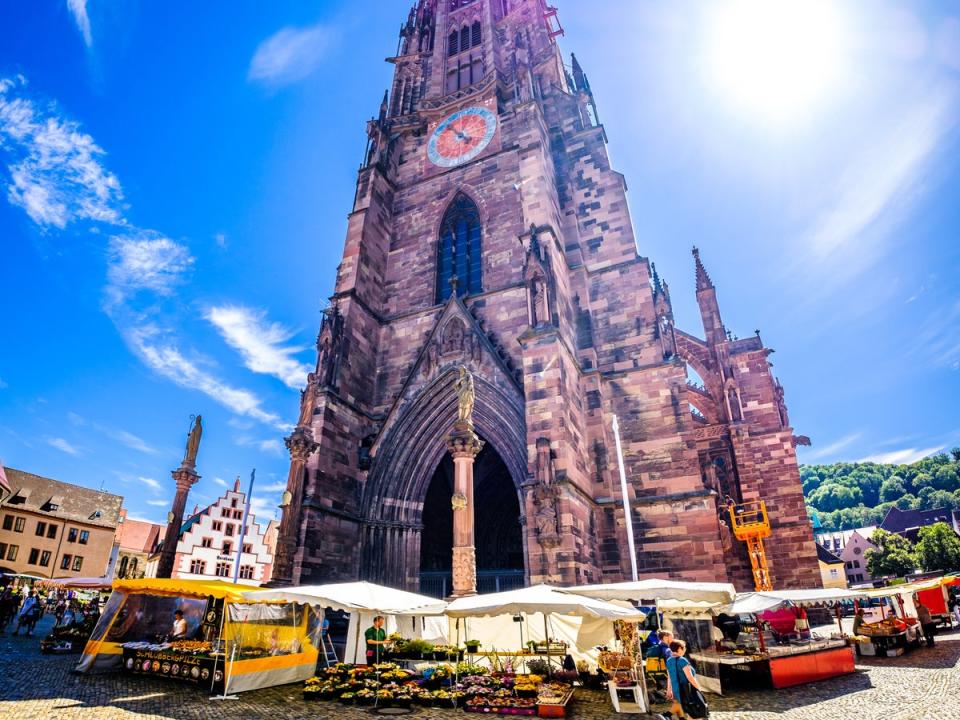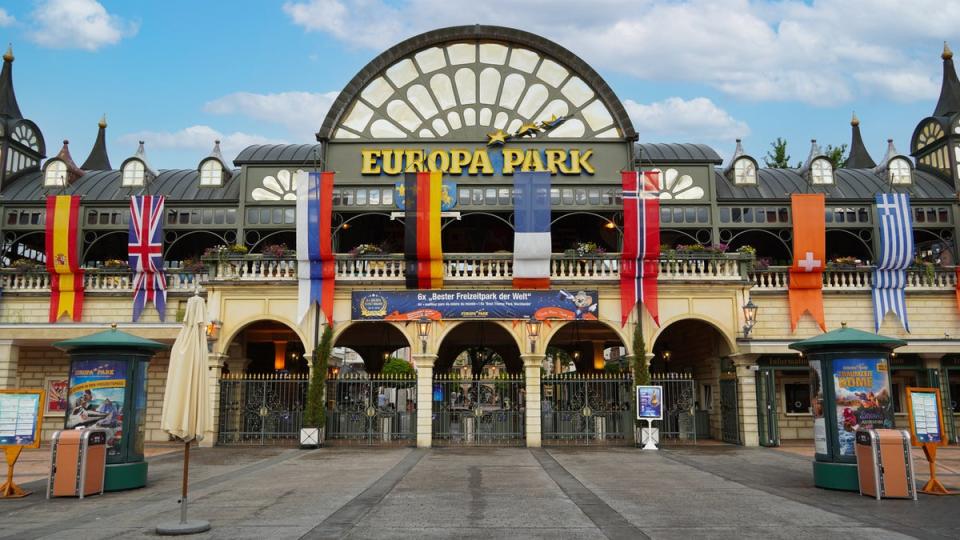Freiburg travel guide: What to do and where to stay in Germany’s charming Black Forest city

With medieval alleys suffused with dusky light and wisteria vines, car-free streets intersected by foot-wide canals and the surrounding Black Forest leaning into so much of its history, Freiburg is fertile ground for a stirring city break.
It’s one thing to visit a stock-in-trade German city with a stunning cathedral, mosaicked squares and hazily nostalgic beer gardens. It’s quite another to visit one that has a thriving wine culture, a carousel of trams and funicular to ride, and eco-consciousness hardwired into its brain. This is Freiburg, and if there was ever a time to visit it is now: it’s having a moment.
In winter, this university city hits the travel jackpot, with snow-laden roofs, glühwein stalls and Christmas goodies galore, while summer ushers in lake swims and eye-candy sunsets. Spring is for farmers’ markets, autumn for the wine harvest – how many cities do you know with a vineyard right in the pedestrian centre?
Oh, and the clincher? It’s Germany’s greenest and sunniest city and is only a train ride away.
Read more on Germany travel:
How to spend a day in Prenzlauer Berg, Berlin’s coolest neighbourhood
Is this ordinary city in Germany really an Asian food hotspot? Ja!
What to do
Sail a toy boat

“There is nothing – absolutely nothing – half so much worth doing as simply messing about in boats.” So says Ratty to Mole in The Wind in the Willows. In Freiburg that’s equally applicable to messing about with boats.
Like a miniature Venice, the pedestrianised Old Town is cross-crossed with clean water-sloshing gutters only big enough for toe paddling and giddy child’s play. These open runnels are better known as Bächle (“brook” in German) and, though designed in the 13th century to quench thirst and fight fires, they’re now used for sailboat races. Handily, plenty of shops sell dinky Bächleboot vessels for a few euros so anyone can join the Lilliputian regatta.
Take a tour of the Münster
Whether you’re one for churches or not, Freiburg’s landmark shouldn’t be written off: it’s sublime. For starters, the Münster can throw all sorts of facts at you (the spire’s higher than Big Ben! It took 300 years to build! Look, stone gargoyles everywhere!), but the joy is simply taking it all in and finding awe in one of the world’s most beautiful cathedrals.
In the surrounding square, the Münstermarkt pops up every weekday and Saturday morning, with farmers, butchers and florists shaking hands with the past and setting up where their forebears once did centuries ago. Many German cities have a signature sausage and Freiburg is no different. Get a lange rote, a precision-cut 35cm finger of pork on a bun.

Drink wine
If the riesling-dominated winelands of Mosel and Middle Rhine are big and brash, then Freiburg’s home region Baden is bijou. The warmest place in the country, the vines absorb both plenty of sunshine as well as influences from Alsace across the border with France. Seen from any angle, vineyards and wine bars spill onto the city streets.
Your starting point should be Alte Wache, a wine emporium that’s led multiple prior lives as a public toilet and barracks for soldiers from Austria. Here, Burgundy-type wines like pinot blanc and pinot noir by the glass cost only €2.5 (you won’t find that in Munich). The city’s speciality is full and fruity gutedel.
Discover Freiburg’s ‘Green City’
The story goes that in the 1970s the city’s university students were the first in Germany to rebel against government plans to introduce nuclear power. Ever since, eco-consciousness and ground-breaking environmentalism have gone hand in hand. Cars are banned in the Old Town. Packaging-free markets, energy-positive buildings, vegan cafes and bike lanes (400km, in fact) are all over. The city has had a mayor from the Green political party for the past 16 years.
To see the highlights, hop on a bike to Paula-Modersohn-Platz. Here you’ll find the ivy-clad Green City Hotel and Solarsiedlung, a solar settlement where each house produces more energy than it needs. Then there’s the eco-friendly Heliotrope, a revolving house powered by solar energy. Other buildings with wow factor elsewhere include SC Freiburg’s solar-powered football stadium and the Town Hall, which was the world’s first public building to produce surplus energy. For an insider’s introduction, book a tour with Freiburgerleben.

Thrill yourself silly at Europa-Park
This colossal theme park campus located in Rust 30 minutes to the north is second in size to Disneyland Paris, but is far better value for money, with themed areas that harness around 100 heart-in-mouth rides, shows and coasters that hop from the temples of Greece to the bullrings of Spain to the fjords of Norway.
In other countries, a ride-a-minute place like Europa-Park would be full of mediocre burger bars and overpriced soda stands. Not here. The food is great, the German beer better, the hotels classy not chintzy, and, in times of crisis, there are few better places to cut off your connection with the rest of the world.
Where to stay
You’ll mainly want to linger in the Old Town, so check in to Park Hotel Post, which overlooks the city’s urban vineyard. The hotel itself is one part mazy guesthouse, one part library, with stuffed bookshelves, literary-themed corridors and wallpaper and cosy rooms. Perfect for curling up late at night with a page-turner.
Located on Münsterplatz, with views of Freiburg’s finest holy spectacle, Hotel Oberkirch is a hospitality heavyweight with an unbeatable setting, classy rooms and gorgeous restaurant terrace crowding the square. If you’re a light sleeper, take note: Freiburg Münster rings its bells loud enough to wake the Gods.
Where to eat and drink
A visit to Brauerei Feierling seems unavoidable. Ask a local and they’ll recommend the beer garden, stay with a friend and they’ll lead you there first. The reasons are manifold: wallet-friendly beer brewed across the street, retro stomach-liners like bratwurst, spätzle and pretzels, a convivial atmosphere in the company of a battalion of drinkers. All that’s missing is enough time to stay the whole day.
Dining in Freiburg is as fulfilling as drinking, with the city’s flavours influenced by the surrounding forest and farmland. So make space on your schedule for Grossen Meyerhof (traditional Baden cuisine); Markthalle (street food in the historic newspaper building); Wolfshöhle (Michelin-star tasting menus); and Gasthaus Roter Bären (the oldest inn in Germany).
Nuts and bolts
What currency do they use?
Euros.
What language do they speak?
German.
Should I tip?
10 per cent will do, though tipping is not expected in Germany.
What’s the time difference?
GMT+1
What’s the average flight and train time from the UK?
One hour and 35 minutes from London or two hours from Edinburgh to EuroAirport Basel-Mulhouse-Freiburg. Trains operated by Eurostar, TGV Lyria and Deutsche Bahn connect London to Freiburg in under seven hours.
How should I get around?
On foot or by bike.
What’s the best view?
For the textbook Freiburg photo, seek out Kastaniengarten, a sublime panoramic beer garden with spire and sunset views across the rooftops.
Insider tip?
Jump on the Schlossberg funicular and ride into the surrounding woodland that now acts as a weekend retreat for Freiburg’s outdoorsy folk. The 456m Schlossberg is the gateway to the Black Forest and – beyond the tree line – adventure awaits.
Read more on the best hotels in Europe

